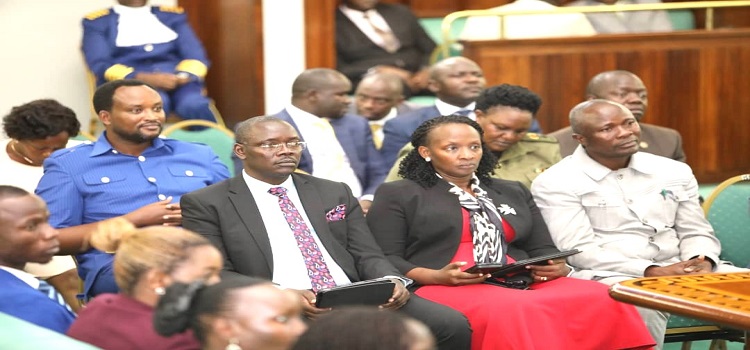The Finance Ministry, led by Permanent Secretary Mr. Ramathan Ggoobi, has proposed significant budget cuts for the Financial Year 2024/25, affecting the Agro-Industrialisation (AGI) program. The government seeks to reduce the budget for AGI by 9.4%, from Shs1.81 trillion to Shs1.64 trillion.
This decision is outlined in the National Budget Framework Paper for FY2024/25 – FY2028/29, presented to Parliament by Finance minister Mr. Henry Musasizi on December 12. The budget cut not only impacts development expenditure, decreasing from Shs413.5 billion to Shs379 billion but also involves a reduction in external financing from Shs1.007 trillion to Shs831.3 billion.
The proposed cuts directly affect three out of the 17 ministries, departments, and agencies (MDAs) involved in implementing the AGI program. These include the Agriculture Ministry, Local Government Ministry, and National Agricultural Advisory Services.
| Affected Ministries | Proposed Budget Cut |
|---|---|
| Agriculture Ministry | Shs170 billion |
| Local Government Ministry | Shs170 billion |
| National Agricultural Advisory Services | Shs170 billion |
However, other MDAs, such as the Trade Ministry, East African Community Affairs Ministry, and others listed, will maintain their current budgets.
Under the same program, the Ministry of Water and Environment, National Animal Genetic Resource Centre and Data Bank, National Environment Management Authority, and Uganda Free Zones Authority will experience budget increases.
Finance Ministry spokesperson Mr. Jim Mugunga clarified that these proposed cuts aim to reduce reliance on external funding in the national budget. He emphasized that the agro-industrialization budget, despite the reduction, remains substantial compared to other sectors.
Several programs, including mineral development, manufacturing, private sector development, and others, will also face budget cuts. The government’s objective is to curb unnecessary expenditure and reduce borrowing, especially domestic, to boost economic recovery.
Mr. Mugunga noted that the country’s public debt stood at Shs88.9 trillion by the end of June, with Shs479 trillion being external and Shs33 trillion internally borrowed.
Experts have criticized the government for borrowing without wise investments, resulting in a significant increase in debt. The Executive Director of the Civil Society Budget Advocacy Group, Julius Mukunda, highlighted the impact of high debt servicing costs on the government’s fiscal capacity.
The AGI program faces budget cuts, even though its budget was increased in the previous financial year. The program aims to transform the agricultural sector, aligning with the goals of the 2021/25 National Development Programme III.
The government remains optimistic that the AGI program will lead to positive outcomes, including increased agricultural sector growth, job creation, and enhanced food security. In the FY2024/25 budget, the government plans to procure farm machinery, support dairy farmers, and invest in post-harvest handling equipment.
Mr. Mugunga emphasized that the government faces resource constraints but remains optimistic about resolving issues with the World Bank, expecting increased tax revenue to fund future budgets. Finance Minister Mr. Musasizi outlined that the budget will be financed through improved revenue collection and controlled borrowing to reduce debt servicing costs, supporting faster socio-economic transformation.




















